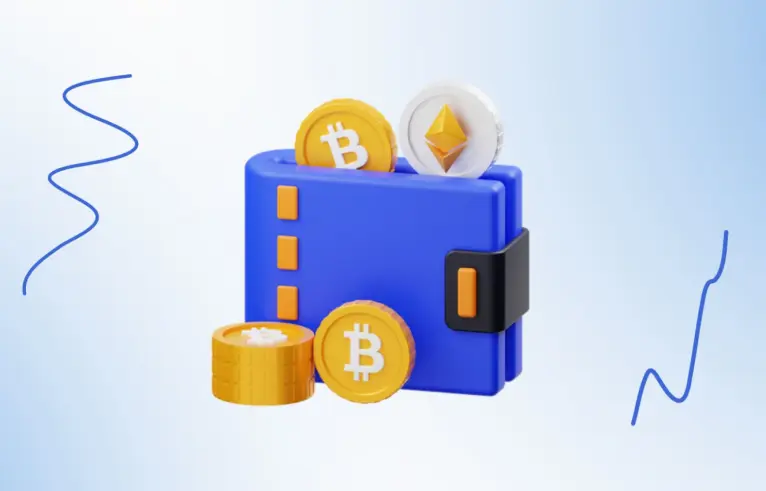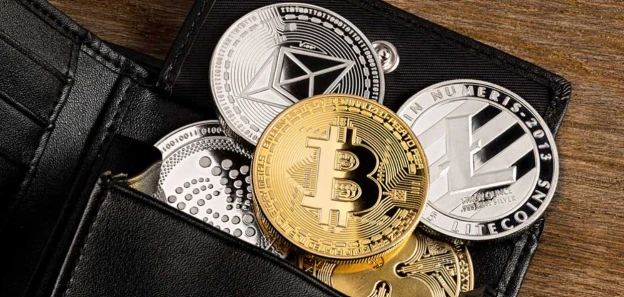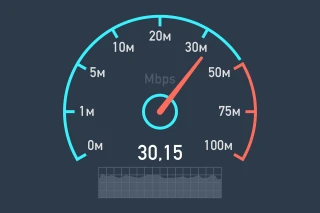
How to Choose a Cryptocurrency Wallet: TOP-10
Various cryptocurrencies are increasingly penetrating our daily lives. Today, every other person needs a reliable cryptocurrency wallet. But how to choose one if you're only superficially familiar with the topic? In this article, we've detailed different types of wallets and offer you our review with a top 10 list and recommendations for selection.
Which wallet to choose for cryptocurrency?

Before creating a cryptocurrency wallet, it's necessary to determine its type. There are several:
- Hardware Wallets – physical devices that store private keys offline;
- Software Wallets:
- Desktop Wallets – software installed on a PC or laptop;
- Mobile Wallets – applications for smartphones and tablets;
- Web Wallets – wallets accessible through a web browser;
- Paper Wallets – physical documents with printed public and private keys;
- Hardware Security Module (HSM) based wallets – devices that provide key storage and management in a specialized hardware module;
- Custodial Wallets – wallets where private keys are stored by a third party (usually an exchange or service).
As you can see, the classification is much broader than simply cold and hot cryptocurrency wallets.
Which cryptocurrency wallet is best to choose?

Before opening a cryptocurrency wallet, it's worth assessing your needs and comparing them with existing offers. Here's an approximate guide to help you make the most rational and secure choice:
- Determine your needs:
- if you need maximum security, consider hardware wallets or paper wallets;
- if you plan frequent transactions or want access to funds anytime and anywhere, consider mobile or web wallets;
- ensure the wallet supports the cryptocurrencies you intend to store;
- Choose the wallet type:
- hardware wallets: high level of security, but may be inconvenient for frequent transactions;
- software wallets: a hot cryptocurrency wallet is suitable for frequent transactions and convenient to use:
- desktop wallets: good for those working on one device, but susceptible to virus risks;
- mobile wallets: convenient for on-the-go use, but may be vulnerable to theft;
- web wallets: accessible from any device with internet, but vulnerable to phishing attacks;
- paper wallets: excellent for cold storage, but not suitable for frequent transactions;
- custodial wallets: convenient and offer customer support, but you don't control your private keys;
- Research available wallets:
- investigate reviews and reputation of the wallet in the cryptocurrency community;
- check what security measures the wallet offers (two-factor authentication, encryption, etc.);
- ensure the wallet has a user-friendly and understandable interface. For example, a cryptocurrency wallet in Russian;
- check if your wallet is supported on the device you plan to use;
- Setup and backup:
- follow instructions for installing and setting up the wallet;
- write down and securely store the seed phrase or private keys. This will help recover access to your wallet in case of device loss;
- Start using the wallet:
- send a small amount to ensure you've set up the wallet correctly and understand how to use it;
- regularly update the wallet to protect against vulnerabilities;
Additional recommendations:
- if you're a beginner, start with small amounts to get used to using the wallet;
- for different needs, you can use different wallets, for example, a hardware wallet for long-term storage and a mobile one for daily transactions.
By following these steps and recommendations, you'll be able to choose the best cryptocurrency wallet that best meets your needs and ensures the security of your funds.
Top Cryptocurrency Wallets in 2025

We present our subjective list, which we hope will help you choose the best cryptocurrency wallet:
- Ledger Nano X
- Wallet type: hardware wallet
- Advantages: high level of security, support for multiple cryptocurrencies, Bluetooth for mobile use
- Disadvantages: expensive, complexity for beginners
- Trezor Model T
- Wallet type: hardware cryptocurrency wallet
- Advantages: high level of security, touchscreen, support for multiple cryptocurrencies
- Disadvantages: expensive, may be difficult to set up for newcomers
- MetaMask
- Wallet type: web wallet (browser extension)
- Advantages: ease of use, integration with most decentralized applications (dApps), free
- Disadvantages: vulnerability to phishing attacks, private key storage in browser
- Exodus
- Wallet type: desktop and mobile wallet for storing cryptocurrency
- Advantages: user-friendly interface, built-in cryptocurrency exchange, support for multiple cryptocurrencies
- Disadvantages: closed source code, lack of two-factor authentication
- Trust Wallet
- Wallet type: mobile wallet
- Advantages: support for multiple cryptocurrencies, built-in DApp browser, free
- Disadvantages: vulnerability to phishing attacks, limited desktop support
- Mycelium
- Wallet type: mobile electronic cryptocurrency wallet
- Advantages: high level of security, integration with hardware wallets, open source
- Disadvantages: complex interface for beginners, limited cryptocurrency support
- Coinbase Wallet
- Wallet type: mobile and web wallet (custodial)
- Advantages: integration with Coinbase exchange, support for multiple cryptocurrencies, user-friendly interface
- Disadvantages: custodial wallet, possible fees
- Electrum
- Wallet type: desktop wallet, high cryptocurrency wallet rating
- Advantages: high level of security, hardware wallet support, light and fast
- Disadvantages: limited cryptocurrency support (Bitcoin only), complex interface for beginners
- Atomic Wallet
- Wallet type: desktop and mobile wallet
- Advantages: support for multiple cryptocurrencies, built-in exchange, user-friendly interface
- Disadvantages: closed source code, possible exchange fees
- Blockchain Wallet
- Wallet type: web wallet (custodial)
- Advantages: support for multiple cryptocurrencies, built-in trading, user-friendly interface
- Disadvantages: custodial wallet, possible support issues
Cryptocurrency Wallet: Additional Recommendations

To enhance the security of your crypto assets and use them most effectively, follow these tips when using a cryptocurrency wallet:
- Distribute assets across multiple wallets to minimize risks in case of hacking or loss of access
- Do not disclose your private keys to ensure strict confidentiality of wallet access
- Create multiple backups and store them in different locations for guaranteed access to assets
- Use complex and unique passwords for each service, preferably using seed phrases when generating private keys
- Enable two-factor authentication to strengthen protection against unauthorized access to your crypto wallet





















